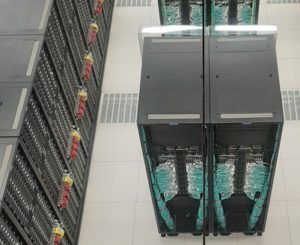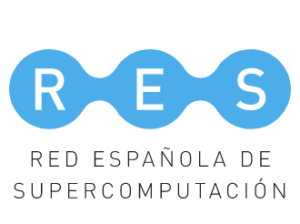
In 2019 the Spanish Supercomputing Network breaks its record of computing hours allocated to Spanish scientists. This Singular Technical Scientific Infrastructure has offered 583 million processor hours to researchers, 80% more than in 2018. For the first time, the RES Award for the scientific career in supercomputing has been awarded in 2019. In 2020 the RES includes data services with the call for the incorporation of new nodes. The RES has prepared a project of the Spanish Supercomputing Competence Center for companies, valued at 2 million Euros.
The Spanish Supercomputing Network (RES) closed the year 2019 with a record in the number of processor hours allocated to Spanish researchers in different areas of knowledge such as: Astronomy, Space and Earth Sciences, Biomedicine and Science Life, Engineering, Physics, Mathematics, Solid State Chemistry, Biological Systems Chemistry. Specifically, in 2019, 583.21 million processor hours were made available to Spanish researchers in the 12 supercomputers that are part of this Singular Scientific-Technical Infrastructure. These data represent an increase of 80% of the amount of 2018, almost doubling the total number of hours.
RES offers to researchers the possibility to reserve supercomputing hours for their European project proposals, which will give them greater competitiveness, as well as the extension of the RES to provide data services,” said Dr. Sergi Girona, coordinator of the RES. “Scientists who use supercomputing generate an enormous amount of data annually, which must be treated and stored properly for later use.” Dr. Girona concludes that “we are entering fully into the era of e-science and the countries most prepared will dominate the research and innovation of the future.”
The contribution of the RES to the advancement of Spanish science is materialized in the scientific publications that, usually in international collaboration, are carried out by users of supercomputing resources.
For the first time, in 2019, the RES Award was awarded to the scientific career in the field of supercomputing to Prof. Alfonso Tarancón, from the University of Zaragoza, founder of the Institute of Biocomputation and Physics of Complex Systems (BIFI). On the other hand, Dr. Manuel Ortuño (ICIQ) was awarded with the RES Award to the best scientific article, with the title: Gas reactions under intrapore condensation regime within tailored metal – organic framework catalysts, published in collaboration in Nature Communications.
In addition, in 2019 more than 200 scientific articles have been published with the use of RES resources. Some of the publications have occupied the covers of the main scientific journals, as is the case of the journal Science that published an article by Laura Rego et al. (Generation of extreme-ultraviolet beams with time-varying orbital angular momentum) that deals with the generation of dynamic vortex pulses in structured light rays that can be applied to the manipulation of nanostructures at ultrafast time scales.
 In addition to providing access to researchers to the RES resources, the RES provides personalized technical support to its users, training and development sessions, networking between experts and users, and internationalization opportunities for their scientific activity, such as the HPC mobility program Europa3 and PRACE, among others.
In addition to providing access to researchers to the RES resources, the RES provides personalized technical support to its users, training and development sessions, networking between experts and users, and internationalization opportunities for their scientific activity, such as the HPC mobility program Europa3 and PRACE, among others.
Dr. Sergi Girona, coordinator of the RES, points out “that the success of the RES lies in the specialized support to users that allows them to carry out their research projects in a very efficient manner.” In addition, it announces the improvements for the year 2020.
During this 2019, the members of the RES have prepared a proposal for a European project, under the EuroHPC Joint Undertaking call of the European Commission, with a budget of 2 million euros, to develop the Spanish Supercomputing Competence Center targeted to companies in order to acquire the necessary skills to incorporate the use of supercomputing into their innovation and business projects.




